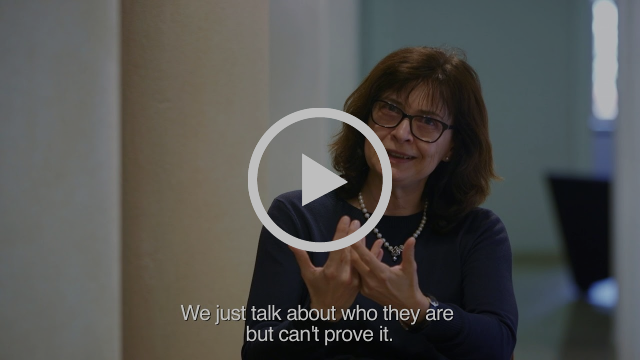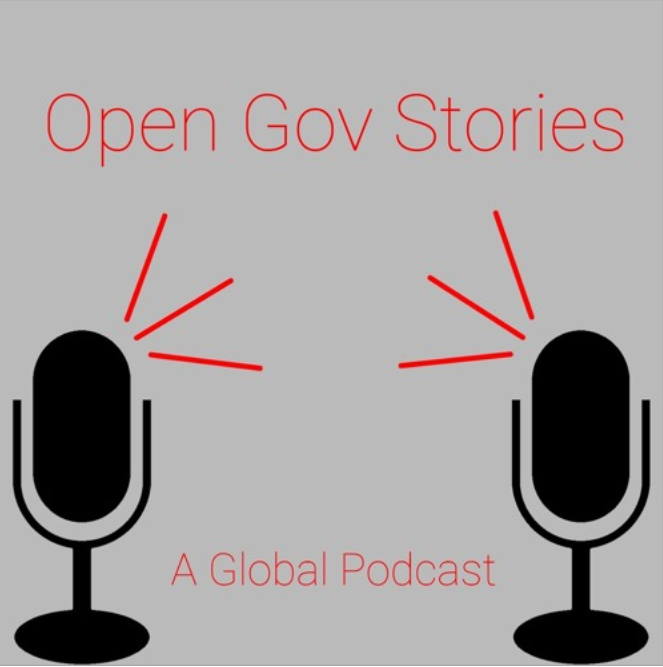Highlights:
- IDs, please
- The taxman cometh
- Are you creating value?
- Another day older and deeper in debt
- Fool’s gold?
- Terms and conditions apply
- TAI Spotlight: Open data retrospective and fiscal sponsorship blog series
In case you missed it…
IDs, please

Photo: by Mohamed Hassan from Pixabay
One of the most talked about emerging technology categories is digital ID. Linda Raftree summarizes both potential benefits of digital ID in improving access to services and serious concerns about privacy and human rights. An area ripe for better governance? Sector adaptation will be needed, so good to see a group of researchers have developed a set of best practices to getting the most out of opening up health data while protecting patient privacy. Anyone helping develop a country’s digital ID system might also read Stefaan Verhulst’s five priorities and roadmap for using data for social good. Among the priorities? Becoming people-centric and focusing on translating data into action, not just knowledge.
Concerns of privacy are one reason why Luminate’s Ory Okolloh and Sharon Wekwete are calling for an African bill of data rights as the continent rapidly digitizes. Rights that go beyond privacy – the SWIFT Institute reminds us that the way we collect and measure data can mean certain populations are excluded, which has serious implications for determining impact outcomes of programs. Maybe this can be a priority for the new social enterprise, 60 Decibels, spun out of Acumen’s Lean Data program, which aims to put low-income customers and consumers at the center of impact data measurement.
And before evaluating impact, you might want to read Rebecca Baylor’s outline of a healthy routine for ensuring useful measurement that’s relevant to your organization. Talking or relevant measurement, new research out of the Harvard Kennedy School (supported by some TAI members) shows no significant impacts of transparency on eventual health outcomes in Tanzania and Indonesia. As we know, making things transparent is one thing, but improving lives is quite another. But in research, there are no negative findings but rather findings that stimulate new research into why the desired outcome wasn’t achieved. In turn this will (hopefully produce) better projects.
The taxman cometh
Reflective of growing political pressures to rein in big tech, G20 finance ministers are pushing ahead with plans for a global digital tax system. The leaders endorsed the “two-pillar” approach, which involves both taxing companies based on where goods and services are sold versus where the company is based, and enforcing a global minimum tax rate to counter base erosion and profit shifting attempts – both now subject of complex discussions hosted by the OECD.
Elsewhere, various G20 members are pursuing their own efforts to create more fair and equitable financial systems. In South Africa, President Cyril Ramaphosa signed into law Africa’s first carbon tax, aimed at curbing pollution in a coal-dominated country – is it designed for success? Japan is partnering with the OECD to launch the Asia-Pacific Academy for Tax and Financial Crime Investigation, aimed at providing capacity-building courses for tax crime investigators and related law enforcement officials. In the US, Anne Applebaum highlights the “legal form of bribery” that opaque offshore vehicles enable, and calls for more action on tax havens and beneficial ownership. At least some in Congress were listening, as the House Financial Service Committee passed the Corporate Transparency Act designed to end anonymously-owned shell companies in a rare act of bipartisanship. That legislation will not create a public ownership register – some worry about privacy concerns. In response, Loren Treisman reminds us of the recent Engine Room, OpenOwnership, and B Team study that argues there is “a balancing act” between privacy and the benefits of publication, where often the publication benefits outweigh privacy for corporate owners. For those who want their ownership data to be kept private out of legitimate concern, the UK has a safeguard measure in place where owners can apply for privacy, however only 5 of 270 applications were granted. (For more on why such registers matter see Essential Watching)
For its part in the UK, tax is prominent in battles to be the next Prime Minister. Ever heard of the Mirrlees Review? We doubt many UK voters have either, but one challenger – DFID Secretary Rory Stewart – is using it to call for a simplified and modernized tax system. He might also want to advocate beefing up UK audit capacity. Two research institutes have found that a third of people who file income tax underpay, costing the government £8 billion. Of course, some might consider pushing people to pay taxes political suicide. Is that really the case? Long awaited World Bank research might offer some insight. They find that “tax morale” i.e. happiness around paying taxes, increases with the salience of anti-corruption efforts and when citizens are allowed to voice their expenditure preferences.
It sounds like participation is the name of the game for getting people to pay their taxes. Gianluca Sgueo has some cool ideas on “gamifying” government which could be one approach for getting citizens more involved.
Essential Watching
Open Government Partnership highlights the importance of knowing who are the real owners behind companies in Slovakia and elsewhere.

Are you creating value?
Things like improved tax systems or data transparency arguably have a public value. But how we measure public value? Nesta offers a methodology for assessing the social and public value of something, with an eye to improving spending decisions among governments and non-profits. Likewise, two researchers at UCL’s Institute for Innovation and Public Purpose argue that innovators need to get serious about creating and sharing public value. This will be central, they argue, to the emergence of a “purposeful capitalism,” where companies and government are working together to help society achieve its desires.
A the same time, we might stop and ask whether our programs are really creating value day to day for the people who need it most. Rebecca Kaduru argues that the obsession among social entrepreneurs with achieving “systemic change” has meant the daily realities and voices of marginalized people have fallen through the cracks. Yet, for funders of a certain size who invest at scale, systems change will always be the goal. If that is the case, Michelle Sieff says that funders need to consider what the theory will be that underpins this system change, and an example from Co-Impact’s work in Liberia may provide some insights. And if you’re really want to dive deep on systems change, check out a new course on Theory U from MIT, Leading Change in Times of Disruption. For a taste, read Otto Scharmer’s recent blog on the new generation leading a global movement for systems change.
Another day older and deeper in debt
G20 Finance Ministers were busy on more than just digital tax this past week, also signing off on the debt transparency principles, we featured last week (along with some critiques). These now go the G20 Leaders Summit in Osaka for blessing at the end of the month. A positive step in the view of former USAID Administrator and ONE Campaign President Gayle Smith and Center for Global Development President Masood Ahmed who urge the full adoption as crucial to meeting the SDGs. As TAI members explore how grantees are strategizing for new debt burdens in priority countries, we’re glad to see the G20 taking the debt issue head-on. Yehia Hamed highlights the challenges facing Egyptians right now as their debt skyrockets, forcing President Sisi to cut much-needed spending on infrastructure and social services.
Fool’s (black) gold?
For those with large natural resource endowments, exploiting those resources can be one path to alleviating debt. Yet theory rarely matches practice. How to design a fiscal system which effectively capture rents without scaring away investors? Thomas Lassourd reminds us how technically complicated it can be, particularly in low-capacity countries like DRC. And this doesn’t even consider countries with state-owned companies, which still reign supreme in the oil industry, and come with a whole host of transparency concerns. In Senegal, an oil tycoon may have swindled the Senegalese people out of hundreds of millions of dollars of possible oil rent.
Then there’s the environmental concerns, which are coming to the fore in Kenya as China aggressively pushes investment to open coal mines in unspoilt environments like Lamu Island. This despite China’s claim to be a global leader on climate change. Are Chinese firms risking their investment returns by failing to account for community feedback? Natalie Bridgeman Fields argues, yes, and urges Chinese financiers to push for clearer accountability frameworks. There might be other reasons to worry about foreign investment too, as a recent article in the Journal of Development Economics shows that Chinese aid to the home regions of national leaders tripled after they took power.
Luckily, there are plenty of efforts to ensure that investment in the extractives industry is more transparent. EITI signaled its desire to strengthen its partnership with OGP, citing overlapping interests in issues like beneficial ownership. And Afrodad is working with mining executives in Zambia to create a policy dialogue around improving transparency and accountability in the Zambian mining sector.
In all these efforts, let’s not forget the gender dimension, as grassroots women’s organizations have often been at the forefront of promoting fairer and more just natural resource governance. We have a responsibility as funders to turn commitments on gender equality made at the OGP Summit in Ottawa into action. It’s why we were glad to see gender and natural resource governance as one of the thematic priorities for OGP’s Multi-Donor Trust Fund. As large as the challenge of gender equality may be, we’re on board with the Rockefeller Foundation’s new mini-film series which says that is indeed #Solvable.
Not that mission goals necessarily get reflected in organizational internal practices. Final reports on inquiries at both Oxfam and Amnesty International remind us of the need to be vigilant to abuse within the NGO sector.
Terms and conditions apply
Open contracting also featured heavily in Ottawa and many will be familiar with the much-touted Prozorro procurement reforms in Ukraine. So we appreciate the work of Charles Kenny and colleagues to unpack what we can truly measure about the benefits of those reforms and highlight the challenges of dealing with data gaps, attribution issues and more. Just as important as making sure procurement systems are transparent is making sure that bidders in those systems are respecting human rights. That’s the topic of report by Sancroft, which looks at how public procurement in the UK upholds anti-slavery laws. The answer is unsatisfying, with the report finding that a third of the top 100 suppliers to the UK government were in fact non-compliant in their regulations to prevent modern slavery in their supply chains.
TAI spotlight
Sharing the open data retrospective | Luminate
This retrospective asks how and why the field of open data evolved globally over the past decade, and where the field is today – a good complement to the recent State of Open Data chapters.
Fiscal sponsorship blog series | TAI
If you missed it, we finished our three-part blog series exploring the issue of fiscal sponsorship. Check out why sponsorship, questions to ask a potential sponsor, and the potential to expand the model beyond the US.
Social media monitoring during elections | Open Society Foundation
This report explains why social media is one of the elements of a democratic, rule of law–based state that election observer groups should monitor.
Upcoming: The cybersecurity visuals challenge | Hewlett Foundation
Hewlett is partnering with OpenIDEO to launch an challenge around finding imagery that better represents the cybersecurity space in an accessible and compelling manner.
*Don’t forget to check out our newly launched Open Gov Stories Global Podcast Series with Open Gov Hub. It goes behind the scenes to explore why social changemakers do the work they do. Listen to more than 20 stories from people in the TAP field and add yours!

Calls: Proposals, papers, speakers and course invites
- OECD Questionnaire for Youth Organisations – June 21
- Request for Proposals: Women’s Political Participation in Hybrid Regimes: August 9
On the calendar
- Global Conference on Transparency Research – June 26 – 27, 2019 (Rio de Janeiro, Brazil)
- Tax Justice Network Conference 2019 – July 2 -3, 2019 (City, University of London, UK)
- ATI/ITC Tax and Development Conference 2019 – July 2 -4, 2019 (Berlin, Germany)
- IDEAS 2019 Global Assembly and Third International Conference on Evaluating Environment and Development – September 30 – October 4, 2019 (Prague, Czech Republic)
- Global Symposium (COPGS) on Citizenship, Governance, and Accountability in Health – October 15-18, 2019 (New Delhi, India)
- What Works Global Summit 2019: Building Evidence – October 16 – 18, 2019 (Mexico City, Mexico)
- Global Perspectives 2019 – October 29 – November 1, 2019 (Addis Ababa, Ethiopia)
- The Story Conference – November 27-29, 2019 (Melbourne, Australia)


